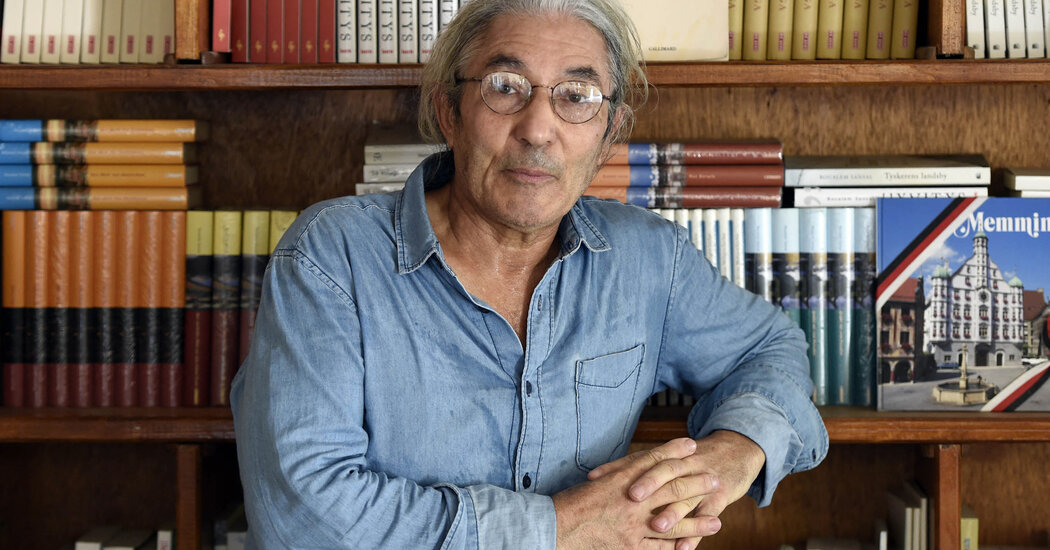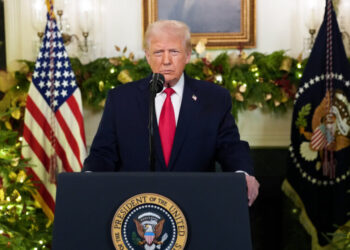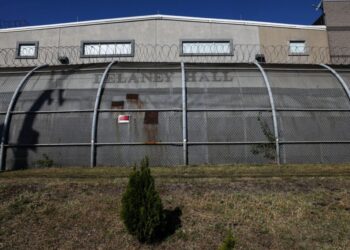Algeria’s president said on Wednesday that he had pardoned an Algerian-French writer who was arrested during a visit to his homeland a year ago and later sentenced to five years in prison on accusations of undermining national security.
The writer, Boualem Sansal, who is in his 80s and has cancer, has been a pointed critic of the Algerian government. His arrest last year prompted an outcry in French literary, political and diplomatic circles and among renowned writers around the world.
It also inflamed tensions between Algeria and France, where Mr. Sansal had been living and acquired citizenship last year. France had made direct attempts to secure his release, but it appeared that it was a request from Germany that ultimately led to the pardon.
The president of Germany, Frank-Walter Steinmeier, had personally requested the pardon for the imprisoned writer. He had cited Mr. Sansal’s literary accomplishments, advanced age and fragile health, as well as his own personal relations with Algeria’s president, Abdelmadjid Tebboune, and Germany’s diplomatic ties with the country as reasons for the pardon.
Mr. Tebboune announced the pardon nearly a year after Mr. Sansal was arrested, saying he had granted “friendly” Germany the humanitarian request. He noted that Germany would pay to transfer and treat Mr. Sansal in that country. Mr. Steinmeier later said in a statement on Wednesday that the writer was on his way to Germany for medical care.
The German president also thanked his Algerian counterpart for the “important humanitarian gesture” and said that the move “demonstrates the quality of the relations and trust between Germany and Algeria.”
The decision to pardon Mr. Sansal at the request of Germany and not France — which had sought his release throughout his incarceration — is pointed. It appears to reflect some of the very tensions that landed the writer in prison to begin with.
The charges leveled against him were tied to comments he made last year in which he endorsed an argument that French colonization had benefited Algeria by depriving Morocco of land in the disputed territory of Western Sahara, which was once part of its kingdom.
His remarks touched on a sore spot for Algeria and came at a particularly fraught moment in its relations with France. They coincided with a visit by the French president, Emmanuel Macron, to Morocco in late October, after France backed a plan that would give Morocco sovereignty over the disputed territory.
France’s stance and Mr. Sansal’s comments angered the Algerian government, which has rejected Morocco’s claim to the land and cut off diplomatic ties with its neighbor in 2021.
France was Algeria’s colonial ruler for over a century, until a brutal eight-year war of independence that ended in 1962. That history hangs over relations between the countries. Over the past year, tensions have increased, with the two sides criticizing each other and mutually expelling diplomats.
A French sports journalist, Christophe Gleizes, has also been caught up in the increased friction. Mr. Gleizes, who covers soccer, was detained in 2024 while he was in Algeria for a story about a former youth soccer team that was made up of the country’s Indigenous Kabyle minority.
He was accused of glorifying terrorism because of previous exchanges with the head of the soccer club, who later became leader of a group that the Algerian authorities had classified as a terrorist organization, according to the advocacy group Reporters Without Borders. Mr. Gleizes was ordered to remain in Algeria. This year, he was convicted and sentenced to seven years in prison.
Mr. Macron, who acknowledged the pardon of Mr. Sansal in a speech on Wednesday, suggested that France had been behind the drive for Mr. Sansal’s release. Mr. Macron said he had spoken with his German counterpart “to express my deep gratitude.”
“German mediation has contributed decisively to this outcome, which is the result of France’s constant efforts,” Mr. Macron added. He also acknowledged Mr. Tebboune’s “gesture of humanity.”
As for the incarcerated French journalist, Mr. Macron said, “Our thoughts are also with our compatriot Christophe Gleizes.”
Mr. Sansal had been working as a civil servant in the Algerian government when he published his first book, “The Oath of the Barbarians,” in 1999. The novel was critical of Islamic fundamentalism and government repression, paving the way for his career as a writer and commentator.
He drew anger for his willingness to visit Israel, his critique of Islamism and for his political outspokenness. He had described himself as “a castaway on a desert island” in Algeria, where he was ostracized.
On Wednesday, news of Mr. Sansal’s upcoming release was met with relief in French news media and literary circles.
“After Sansal, may Algeria free itself and fulfill the dreams of its heroes, of its children,” Kamel Daoud, another French-Algerian writer who has gained international acclaim and inflamed sentiments in his home country over his writing, said on social media.
“The worst of prisons is the one we impose on ourselves,” he added.
Ephrat Livni is a Times reporter covering breaking news around the world. She is based in Washington.
The post Algeria Pardons Imprisoned Writer at Germany’s Request appeared first on New York Times.




